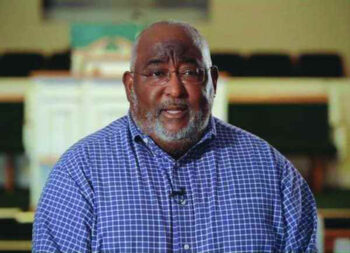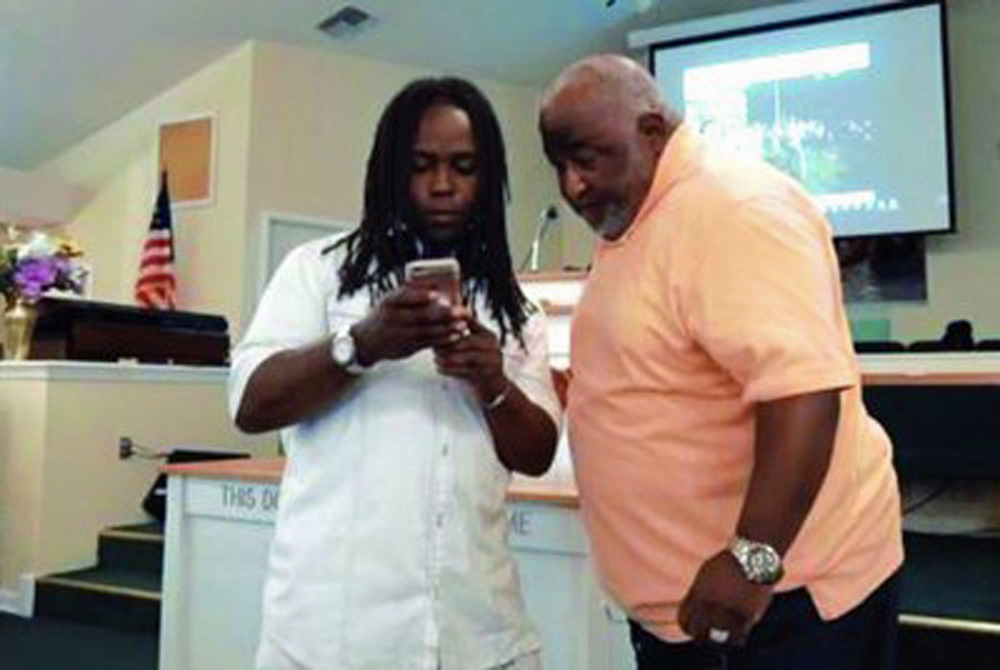by Brian Blackwell —

NASA’s Clifton Arnold is a rocket scientist with a successful formula for church planting.
“You get them in the door with music, you keep them in the house with teaching,” says Arnold, who planted Kingdom Life Fellowship in Houma, La., in 2016. “People go to churches where they like their worship style and their teaching is solid.”
When he is not preaching at Kingdom Life Fellowship, Arnold manages four NASA rocket propulsion test sites — at Stennis Space Center in Bay St. Louis, Miss., Marshall Space Flight Center in Huntsville, Ala., Glenn Research Center in Cleveland, Ohio, and Plum Brook Station in Sandusky, Ohio.
While working on projects to reach the planets and the stars, he uses opportunities to discuss creation and heaven with those he meets in the space industry.
“It’s really amazing that they parallel and feed into one another,” Arnold said. “People are interested in what God has to say about the rest of the universe, and, sometimes you don’t have an answer and you say, ‘Well when I see Him, I’ll ask Him. But right now, the Bible tells me this,’ and that’s the way I approach it.”

Arnold is thankful for God’s faithfulness throughout the church planting process and for His provision for the new congregation through the financial and spiritual support of the 40 people who attend Kingdom Life Fellowship.
Destined for space
At an early age, Arnold knew he wanted to follow in the footsteps of his father, who as a naval officer worked in missile development.
Arnold’s work in the space industry has taken him up close with some of history’s most famous figures, including President Ronald Reagan, astronaut Buzz Aldrin and NASA administrator and astronaut Charlie Bolden.
His most memorable projects have included testing of a propulsion system that one day could possibly transport astronauts to Mars, spacecraft that have mapped gases, fields and streams coming from the Sun, and a thermo-vacuum chamber that simulates space environments.
But the meetings with famous individuals and working on projects around the United States pale in comparison to the joys of church planting, Arnold said.
“I have an opportunity on Sunday to tell everybody who created this great world and the universe we live in,” he said, “and Monday through Friday I try to figure out how it was done.
“My first job out of college was on the weapons side with the Department of Defense,” he noted. “You have death and destruction and all that other gory stuff that went along with that, and God just gave me such insight that ‘I’m not preparing you to continue to do those type of projects. I need you to do something more beneficial for mankind — to explain why we have such a beautiful world and why we are so unique.'”
Church planter at heart
Arnold’s interest in church planting was piqued in 2014 when he worked alongside Jeffery Friend as a North American Mission Board church planting intern at Suburban Baptist Church in New Orleans.
“That sort of whet my appetite for church planting,” he said. “I got to see how difficult it was and wondered if church planting was really for me or not. But there was still a yearning.”
While at Suburban Baptist, Friend took on a transitional pastorate in 2014 at Mechanicville Emmanuel Baptist Church in Houma, and Arnold followed as an associate pastor. Arnold became senior pastor when Friend consolidated his pastorate role to just Suburban Baptist in 2016.
While visiting with residents in the community, Arnold discovered a large segment of African American millennials who were not attending worship services. His burden to reach them became his mission and vision when he planted Kingdom Life Fellowship, which meets inside Mechanicville Emmanuel Baptist’s facility.
“God laid it on my heart to say, ‘How do you reach the unreachable,'” he said. “‘How do you address this hole?'”
“It came back loud and clear as I started talking to other churches and the church that I was pastoring that this culture is truly a unique culture,” he said. “The age groups are so different that the cultures are totally different than the 60 and 70 year olds in the community. And the 60 and 70 year olds were not really willing or ready to change, but they did see a need. So I approached them about a different concept, and that being a church plant.”
Unique model
Arnold proposed to his congregation the idea of becoming the mother church that hosts Kingdom Life Fellowship inside its facility. This approach allows the leadership to coach and teach the new congregation from inside rather than sponsoring them at another location.
“Most of our churches sit empty the majority of the week,” he said. “You have a major issue in that you have infrastructure and it’s not being used. We were able to talk with them and say, ‘What if we had a non-interference different church?’ Everybody wanted to know what ‘different’ really meant. I said what I see in this culture is something that transcends race and economic backgrounds. A lot of these younger people in this age group are into the same music. They are looking for relevance. They are looking for something that they can really call their own, put their fingerprint on it and say this is mine.”
With the help of the Mechanicville Emmanuel Baptist leadership, Baptist Collegiate Ministry students from Nicholls State University in Thibodaux, Franklin Avenue Baptist Church in New Orleans, Northshore Church in Slidell and Revival Life Church in Houma, Kingdom Life Fellowship has grown from three people that first met for a home-based Bible study in December 2016 to a group of 40 meeting in early in August.
As Arnold assesses the future of Kingdom Life Fellowship, he is praying for a senior pastor to eventually take over his leadership role. This would allow him to return to church planting. He is also hoping for the donation of a new laptop computer to use in worship services as well as a school bus to transport a growing number of children and youth attending functions at KLF.
Arnold said the church is thankful to partner with Louisiana Baptists in their vision to plant more churches in south Louisiana by 2020.
“In the state of Louisiana we have a lot of churches but a lot of churches are empty,” he said. “We have a lot of unsaved people and we have to be willing to reach people where they are.” – Baptist Press
Brian Blackwell writes for the Baptist Message (www.baptistmessage.com), newsjournal of the Louisiana Baptist Convention, where this story first appeared.



